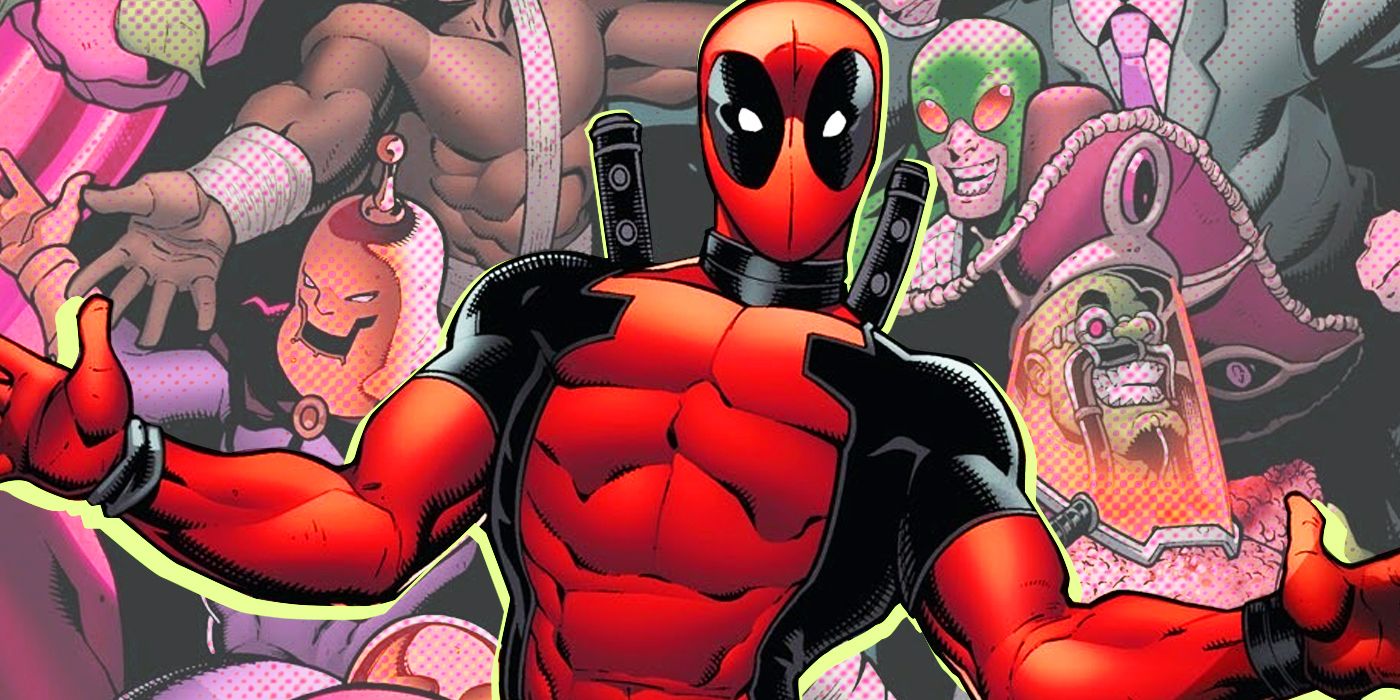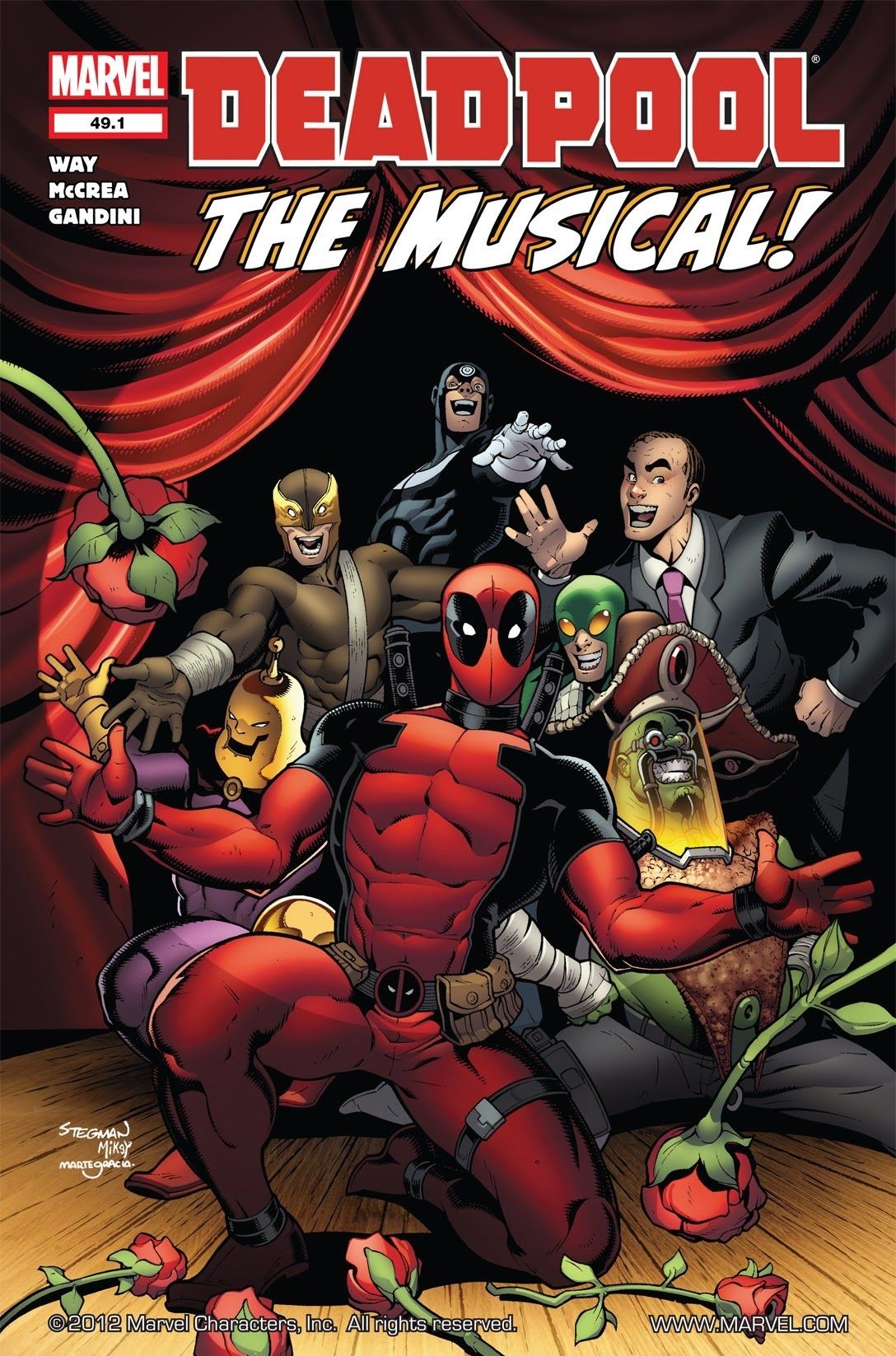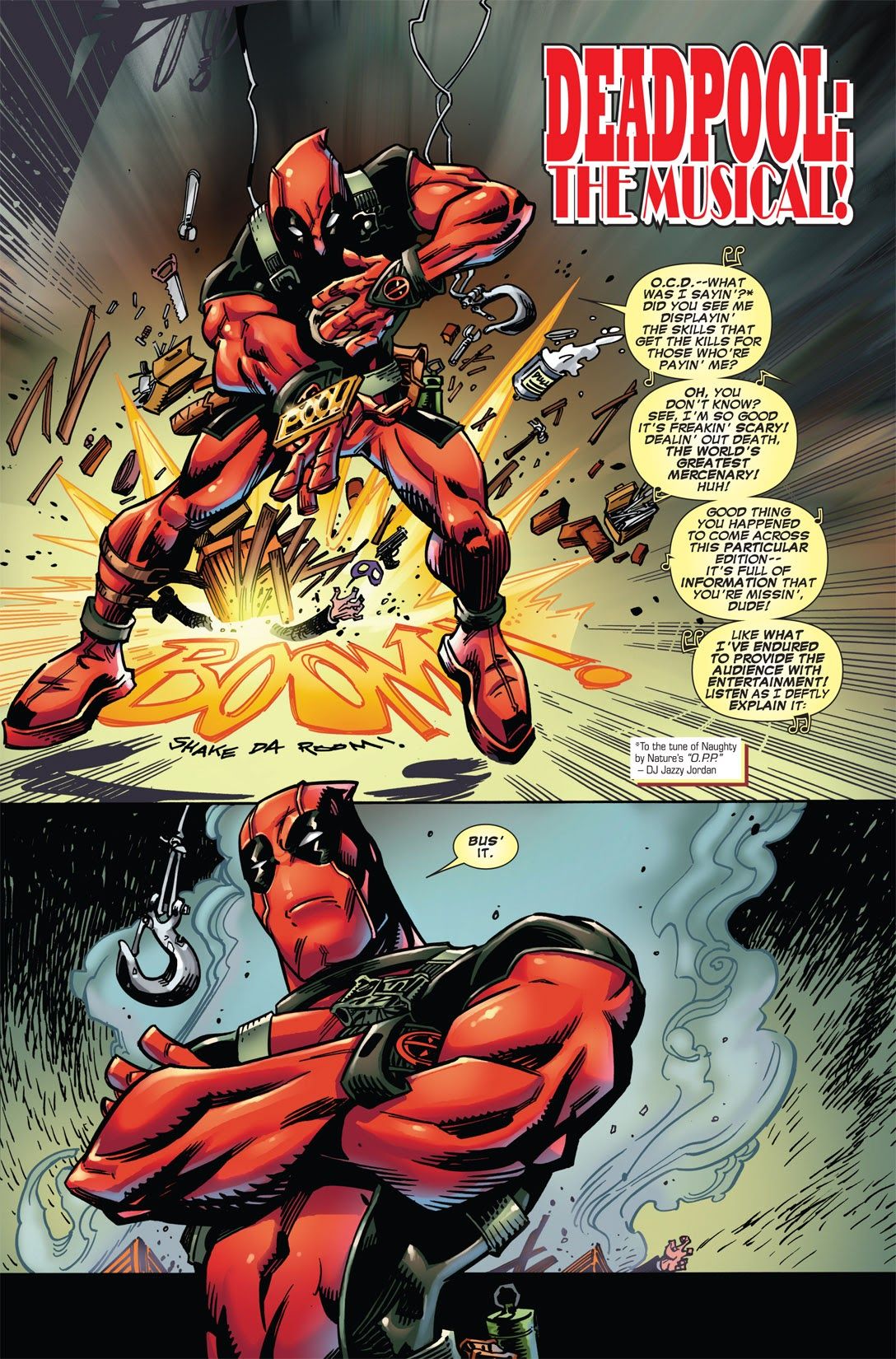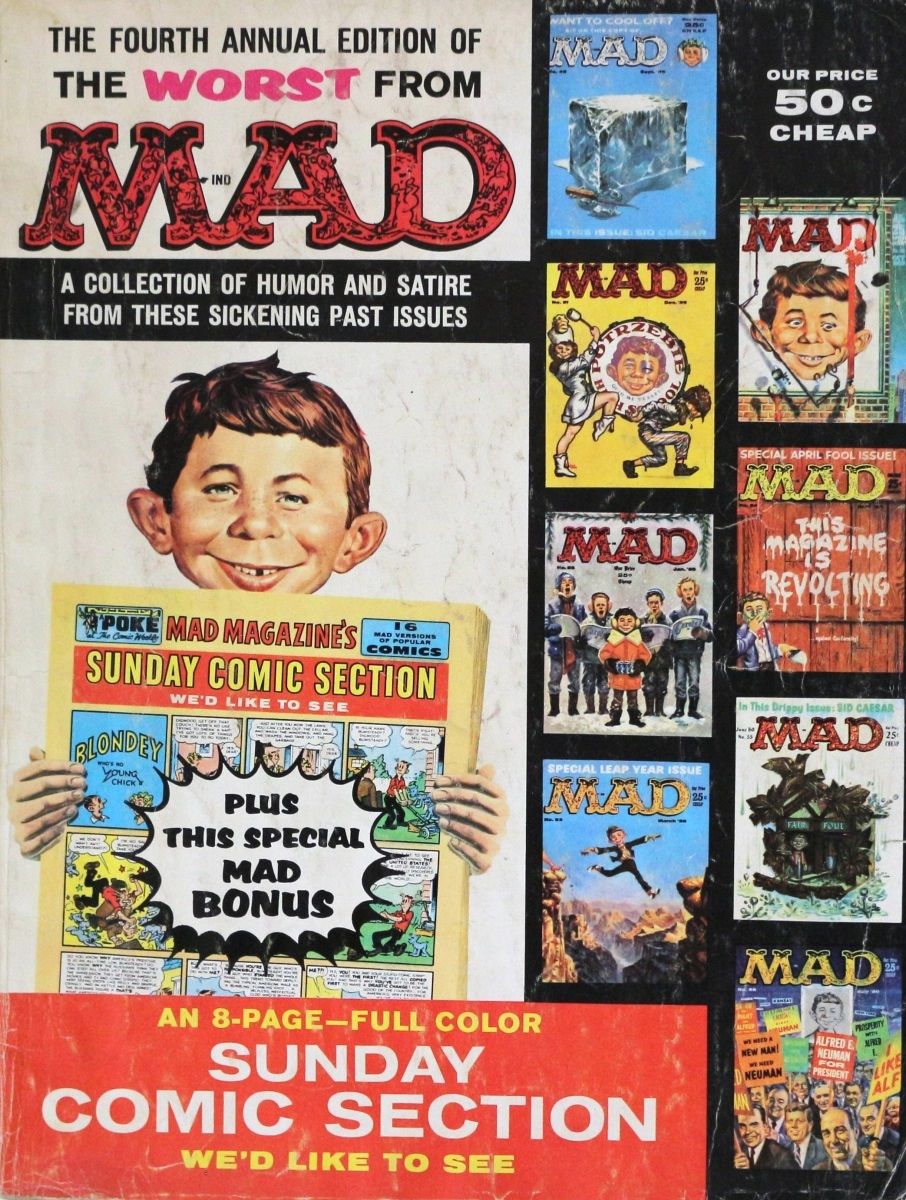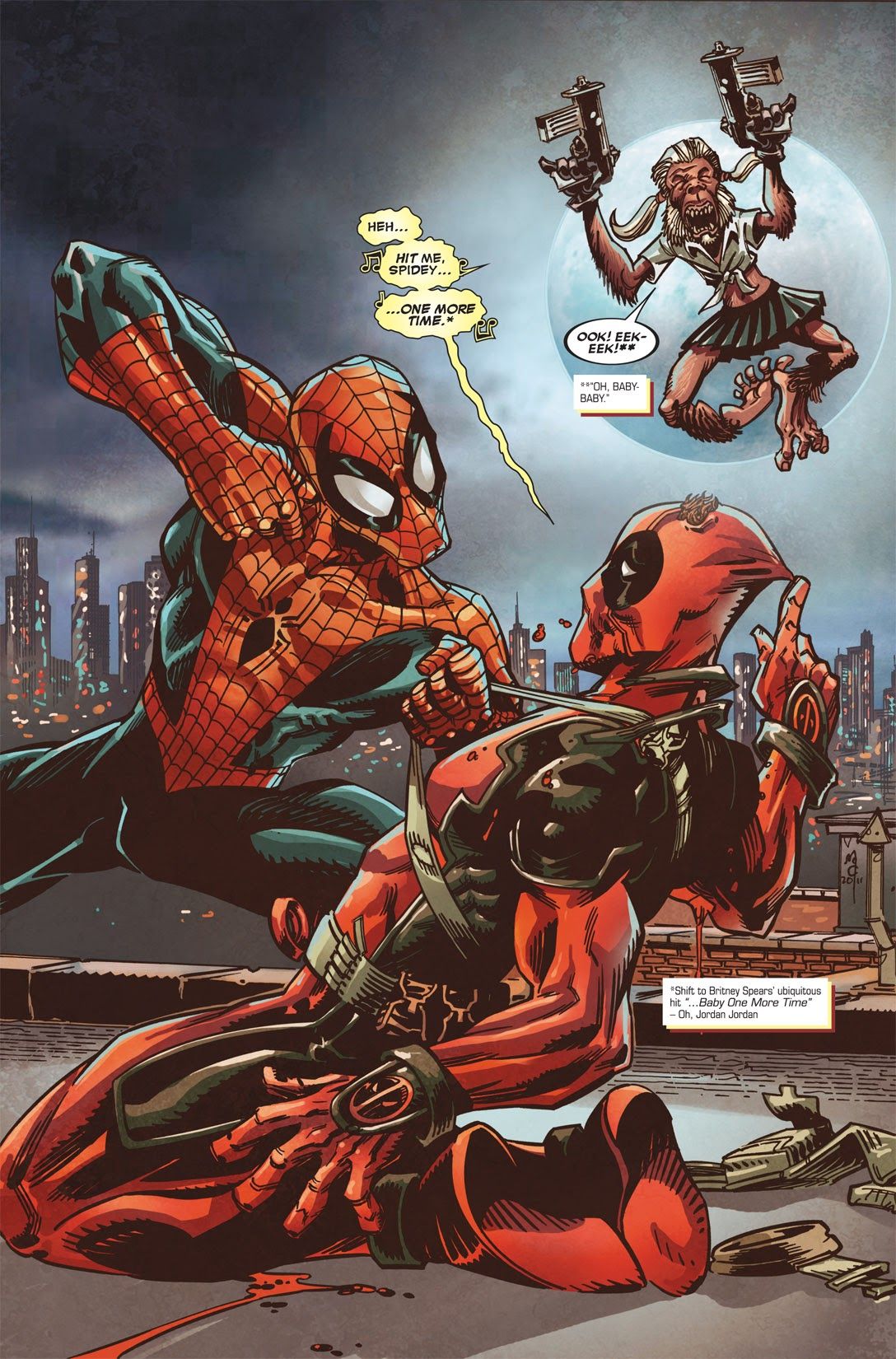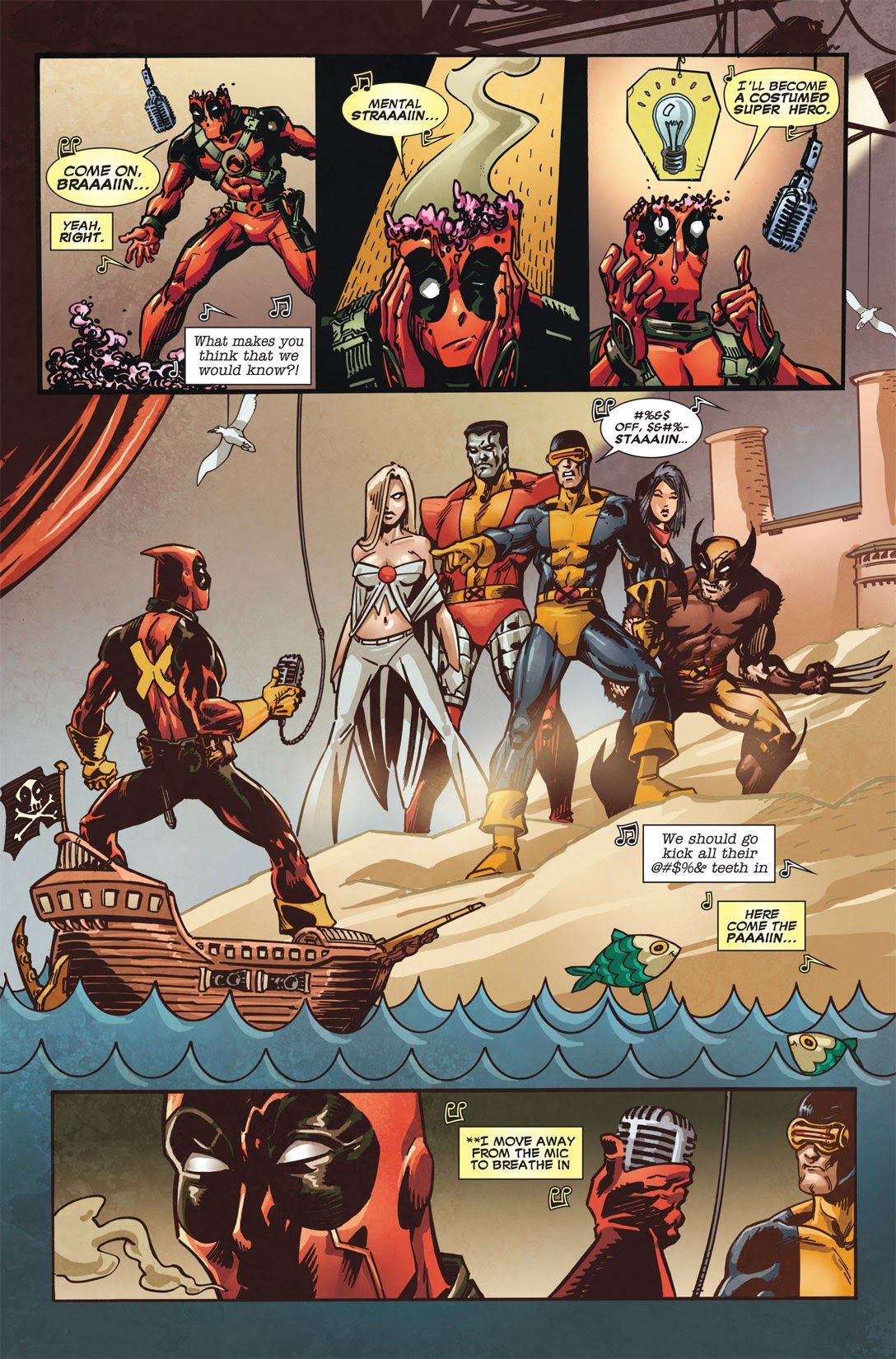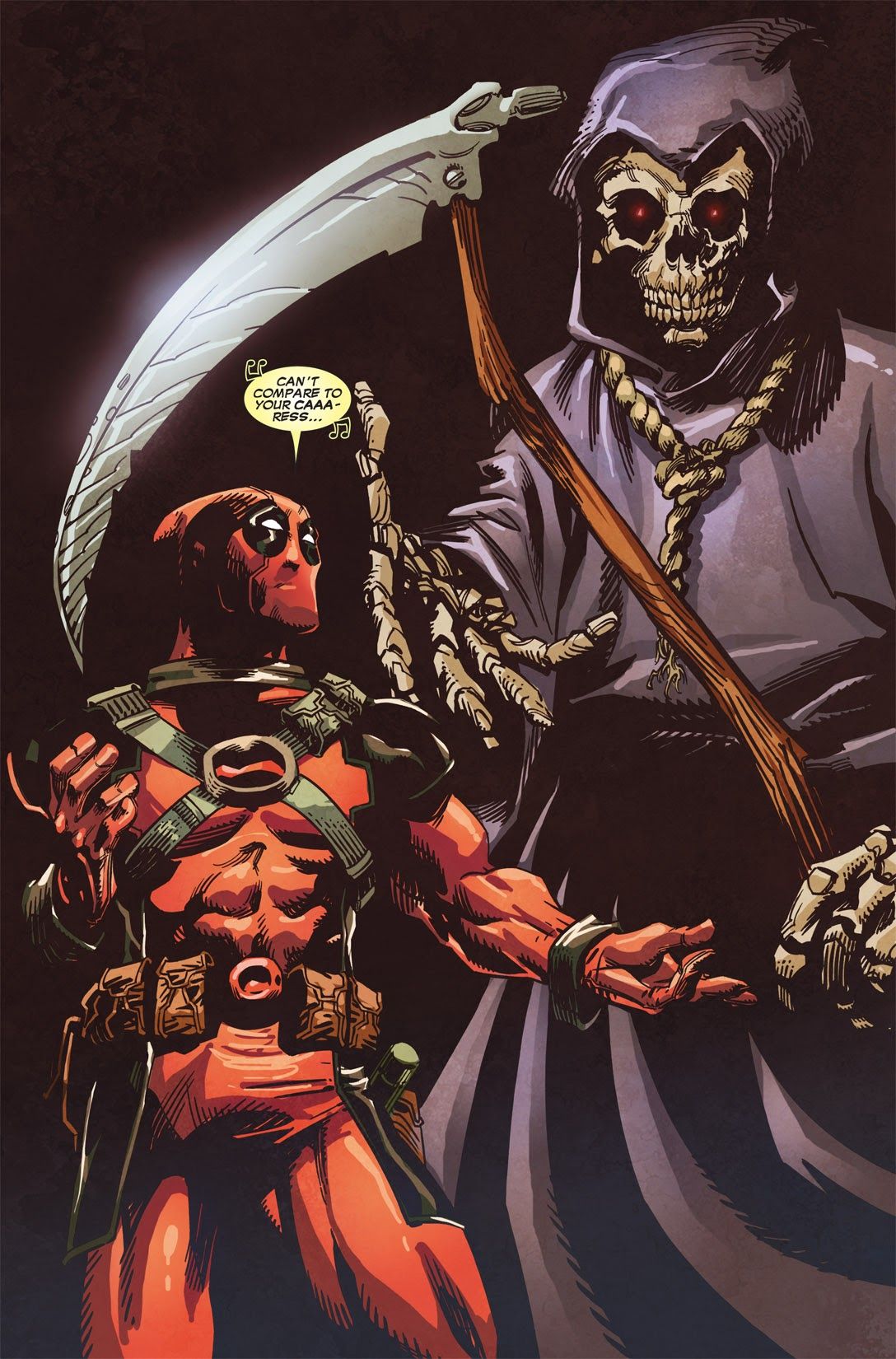Today, we look at Deadpool's bizarre musical issue.
This is "Look Back," where every four weeks of a month, I will spotlight a single issue of a comic book that came out in the past and talk about that issue (often in terms of a larger scale, like the series overall, etc.). Each spotlight will be a look at a comic book from a different year that came out the same month X amount of years ago. The first spotlight of the month looks at a book that came out this month ten years ago. The second spotlight looks at a book that came out this month 25 years ago. The third spotlight looks at a book that came out this month 50 years ago. The fourth spotlight looks at a book that came out this month 75 years ago. The occasional fifth week (we look at weeks broadly, so if a month has either five Sundays or five Saturdays, it counts as having a fifth week) looks at books from 20/30/40/60/70/80 years ago.
We go back to January 2012 for Deadpool's bizarre musical issue in Deadpool #49.1 by Daniel Way, John McCrea and Veronica Gandini.
WHAT IS A MARVEL POINT ONE BOOK?
As you can see from the cover, this is not Deadpool #49, but rather Deadpool #49.1. You might naturally be asking, "Huh?" Here, from CBR's own Shaun Manning, is Marvel's David Gabriel, Tom Brevoort and Axel Alonso (the always swell James Viscardi is there as the moderator, but he's not quoted in this section) describing the point of "point one" issues...
"There's a lot of talk right now about the price of comics and the page count of comics and too many comics, but there's not been a lot of discussion about bringing new readers into comics," Gabriel said, noting that "Point One" would mark a strong story for new readers. He also noted that the idea of "jumping on points" is a bit cliche, but still necessary.
"We've done these kind of things in the past, but more on an individual note," Brevoort said, citing the 9-cent "Fantastic Four" issues and Marvel's Free Comic Book Day editions, "all telling self-contained stories by our best guys." "This is kind of not even a new thing we're doing, but just a new way." "Point One" will be a way to "check back in on a favorite character" for lapsed readers, he added. "Our hope and expectation is you'll want to come back less than a month later, when the next issue is in stores."
"I think that the key here is that the creators, especially the writers, here, understand the challenge: to hook readers in one issue," Alonso said. "They love the idea of the story as a told-in-one," he added.
Brevoort said that "these are not fill ins, they are not throwaways, they are not removable." In most cases--and in all for the writers--the "Point One" issues are by the regular creative teams and will be part of the ongoing story. "These are actual issues of these books that just happen to have a .1 at the end of their number."
So here, Daniel Way decided to use a musical issue to sort of catch readers up with his run up until this point, right before he started a big new story, "Dead"...
DIDN'T THIS SORT OF THING GO TO THE SUPREME COURT?
Interestingly, this very concept (coming up with new lyrics to the tunes of famous songs) actually got Mad Magazine sued back in the day!
To recount from an old Comic Book Legends Revealed of mine, in 1961, Mad Magazine released The Worst of Mad #4, the latest in their collection of pieces from the popular satire magazine.
They had a series of song parodies in the magazine, but for simplicities sake, let's pick one song, a parody of Irving Berlin's "A Pretty Girl is Like a Melody," done by Mad as "Louella Schwartz Describes Her Malady."
Well, the songwriters of the world were fed up, so a group of famous songwriters got together, led by one of the most famous songwriters of all-time, Irving Berlin. He was joined by two other legendary songwriters, Cole Porter and Richard Rodgers. The case, Irving Berlin et al. v. E.C. Publications, Inc., went to District Court in New York.
Judge Irving Kaufman ruled that parody songs, especially those that only contained verbal parodies of the original song (as opposed to musical parodies, which would be a much dicier situation for years after this decision, all the way until the 1990s, really), were protected, provided that they were a limited borrowing of the original song (just enough to get the idea, really).
Of the 25 songs that were being contested (with the songwriters seeking about $1 million for each song - $1 per song per issue sold, for a total of $25 million), Kaufman ruled that 23 of them were fine, but he did hold that two of the song parodies ("Always," a parody of Berlin's "Always" and "There's No Business Like No Business," a parody of Berlin's "There's No Business Like Show Business") WERE too close to the original/contained too much of the original material.
The case was appealed to the 2nd Circuit Court in New York where Judge Charles Metzner ruled that ALL of the songs were protected. The songwriters then appealed to the Supreme Court, who denied hearing the case, thus ending the case with a victory for Mad Magazine and parody writers everywhere!!!
And forty years later, Daniel Way continued this approach with this issue, with Deadpool recounting his fight against Spider-Man to the tune of "Hit Me Baby One More Time"...
and recounting his misadventures trying to join the X-Men to the tune of "Chocolate Rain"....
before using the Misfits' "Last Caress" to express how much he longs for Death herself...
This is a key point because it sets up the next storyline, "Dead," where Deadpool tries his best to solve the seemingly impossible problem of how to finally kill himself once and for all. Good stuff by Way and McCrea and Gandini drew it really well.
If you folks have any suggestions for February (or any other later months) 2012, 1997, 1972 and 1947 comic books for me to spotlight, drop me a line at brianc@cbr.com! Here is the guide, though, for the cover dates of books so that you can make suggestions for books that actually came out in the correct month. Generally speaking, the traditional amount of time between the cover date and the release date of a comic book throughout most of comic history has been two months (it was three months at times, but not during the times we're discussing here). So the comic books will have a cover date that is two months ahead of the actual release date (so October for a book that came out in August). Obviously, it is easier to tell when a book from 10 years ago was released, since there was internet coverage of books back then.

